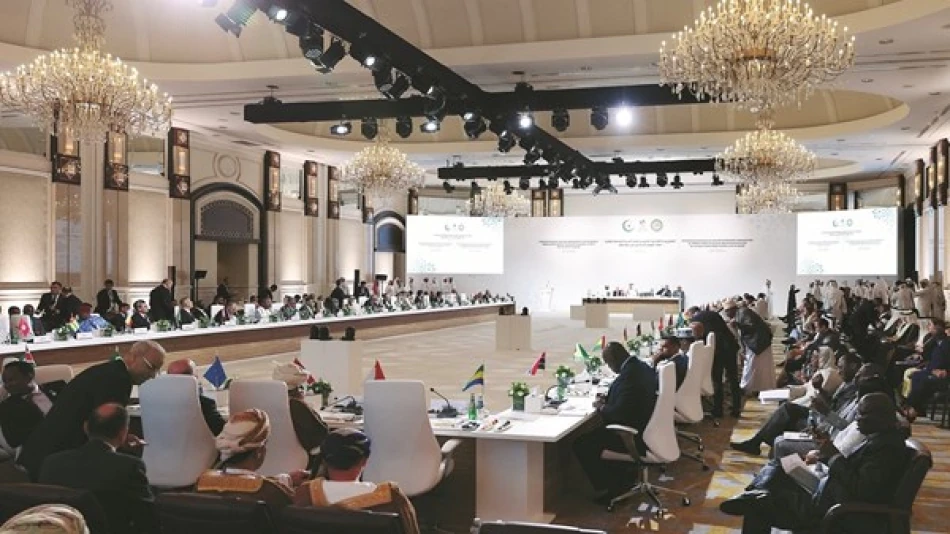
Urgent Arab-Islamic Summit Convenes in Doha to Address Critical Matters
Arab-Islamic Summit Convenes in Doha Following Israeli Strike on Hamas Leadership
Qatar's capital is hosting an emergency Arab-Islamic summit today as regional powers scramble to coordinate their response to last week's Israeli attack that targeted Hamas leaders in Doha. The gathering represents a significant diplomatic test for Qatar's mediation role and could reshape Middle Eastern alliances at a critical juncture in regional tensions.
Diplomatic Fallout from the Doha Strike
The Israeli operation that killed Hamas political bureau chief Ismail Haniyeh in Doha has created unprecedented diplomatic complications for Qatar, which has long positioned itself as a neutral mediator in Middle Eastern conflicts. Foreign ministers from Arab and Islamic nations held preparatory meetings on Sunday to discuss the implications of the attack, signaling the gravity with which regional powers view this breach of Qatar's sovereignty.
The strike marks a departure from previous Israeli operations, which typically targeted Hamas leaders in Gaza or other conflict zones. By conducting the operation in Qatar's capital—a key diplomatic hub and home to major international institutions—Israel has effectively challenged the traditional boundaries of regional diplomacy.
Qatar's Mediation Role Under Scrutiny
Balancing Act Becomes More Complex
Qatar has spent decades cultivating its reputation as a regional mediator, maintaining diplomatic ties with both Western allies and groups like Hamas. This strategy has allowed Doha to facilitate prisoner exchanges, ceasefire negotiations, and humanitarian aid deliveries. However, the recent attack on its soil puts this carefully constructed neutrality at risk.
The emirate now faces pressure to demonstrate that it can protect diplomatic figures on its territory while maintaining its role as a bridge between opposing sides. How Qatar responds could determine whether it retains its influence as a regional power broker or finds itself sidelined in future negotiations.
Regional Implications and Alliance Dynamics
Testing Arab Unity
The emergency summit comes at a time when Arab nations have shown varying degrees of normalization with Israel through the Abraham Accords and other diplomatic initiatives. The attack in Doha forces these countries to choose between their evolving relationships with Israel and solidarity with Qatar, a fellow Gulf Cooperation Council member.
Unlike previous regional crises that often divided Arab nations along sectarian or political lines, this incident presents a more straightforward sovereignty issue that could unite diverse regional actors. The participation of both Arab League and Organization of Islamic Cooperation members suggests broader consensus on the gravity of the situation.
Strategic Calculations and Future Scenarios
The summit's outcomes will likely influence several key dynamics in the region. If Arab and Islamic nations present a unified condemnation, it could complicate Israel's regional integration efforts and strengthen Qatar's position as a defender of regional sovereignty principles.
Conversely, a fragmented response might signal to Israel that such operations carry limited diplomatic costs, potentially encouraging similar actions in other regional capitals. The meeting also serves as a test of whether traditional Arab solidarity mechanisms remain effective in an era of shifting regional alliances and competing national interests.
For international observers, the summit represents a crucial moment in understanding how regional powers will navigate the intersection of counterterrorism operations, diplomatic immunity, and sovereignty claims in an increasingly complex Middle Eastern landscape.
Most Viewed News

 Layla Al Mansoori
Layla Al Mansoori






